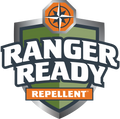(Daily Voice) The makers of Ranger Ready insect repellent are sounding the alarm. Mosquitoes, ticks, fleas, chiggers, and gnats are more than annoyances.
“The rules of the game have changed,” said Chris Fuentes, Norwalk resident and founder and CEO of startup Pic20 Group, LLC, maker of Norwalk-based Ranger Ready insect repellent, “we’ve gone from pesky mosquitoes at barbecues to tiny ticks that can maim you for life.”
Around here, Lyme Disease poses an ever-present threat. In fact, area states like Connecticut have issued warnings, see “ Lyme Disease Warning Issued By CT Department Of Health ." And who can forget the Zika virus? West Nile?
“Biting flies are a nuisance, but we live in the epicenter of tick-borne diseases and abandoning this place isn’t a good option for us,” said Fuentes.
No one is suggesting anyone leave for mosquito- or tick-free climes (good luck finding a place!), but as we’ve learned the unassailable benefits of sunscreen, Fuentes and Ted Kestin, Pic20 Group's founder and COO, want to educate the masses on insect repellents.
And it seems the diseases become scarier as time goes on. Powassan, a tick-borne illness first identified in the Canadian town for which its named, is the latest found in our area, and It can often be worse than Lyme disease, with greater risk of permanent brain damage. Google North Carolina’s former Senator Kay Hagan and Powassan to see how devastating it can be.
Fuentes and Kesten preach a two-step approach to outdoor readiness: 1) sunscreen 2) insect repellent.
“People just don’t use repellents every day,” said Kesten, a long-time New Rochelle, N.Y. resident.
For the Ranger Ready duo, it’s not worth the risk and it shouldn’t be for anyone.
Inventing Ranger Ready insect repellent was an act of moral necessity for Fuentes and Kesten, born from a desire to develop products that are in essence “better”: in better, recyclable bottles; better for the environment; better for us – a product people will use every day.
Currently, the most popular active ingredient in insect repellents in the United States is DEET, which the EPA labels as Category III “slightly toxic.” DEET leaves a marginally oily residue on skin and can damage materials like plastic and leather. Approved for general public use in the late 1950s, daily use of DEET doesn’t hold much appeal for many.
That’s why Ranger Ready uses the odorless Picaridin as its active ingredient. Approved by the EPA in 2005, Picaridin has been the most popular insect repellent ingredient in Europe for the past 25 years. It also doesn’t leave an oily residue, nor does it damage fabric or plastics and it’s classified as Category IV, “virtually non-toxic.” Presently, Picaridin-based repellents make up roughly 10 percent of the U.S. market.
“We are the only EPA-registered company that exclusively sells Picaridin products,” said Fuentes.
Ranger Ready comes in three light scents – Orange, Amber, and Night Sky (lavender-lemon) – and is available online or at its shop located at the company’s Norwalk headquarters at 87 Water Street.
"We want people to know that they can live comfortably in a place and be protected," said Fuentes.
“We wanted to develop something that people will willingly use every day,” added Kesten. “If we’re successful, this product will end up in bathrooms everywhere and become part of your daily routine if you’re going outside.”
By Vira Mamchur Schwartz










